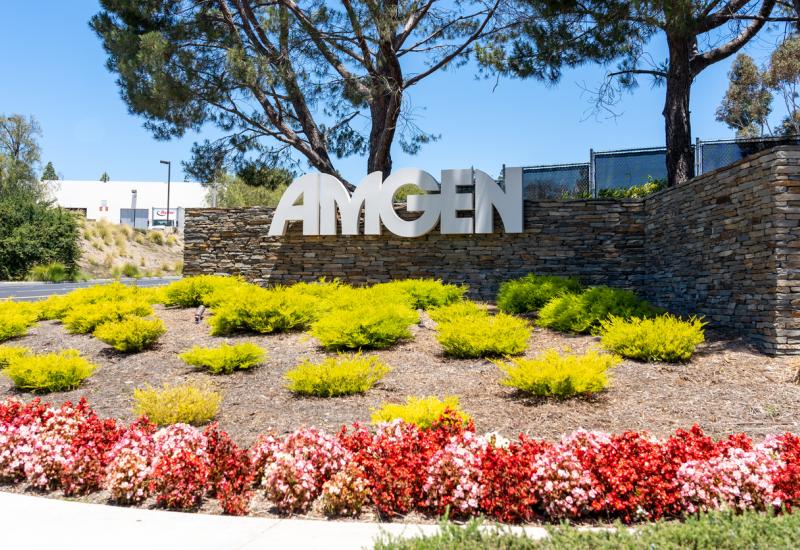
Reblozyl flops in a new anaemia use
The Bristol/Merck’s drug’s hopes in myelofibrosis have taken a blow.
The Bristol/Merck’s drug’s hopes in myelofibrosis have taken a blow.

Reblozyl has been a surprise hit from Bristol Myers Squibb’s Celgene takeout, but the drug’s chances of further expansion were stymied last week after failure of the Independence study. The trial tested Reblozyl plus a Jak inhibitor, versus a Jak inhibitor alone, in patients with in anaemia associated with first-line red blood cell transfusion-dependent myelofibrosis.
Bristol apparently still sees a path forward, saying it will discuss a filing with regulators, despite Independence flunking its primary endpoint, RBC transfusion independence for 12 consecutive weeks versus placebo, with a p value of 0.0674.
Bristol, which is partnered with Merck & Co on Reblozyl thanks to various deals, talked up a “numerical and clinically meaningful improvement in RBC transfusion independence”, as well as hits on secondary endpoints. For example, Bristol said more patients receiving the combo achieved at least a 50% reduction in RBC transfusion burden, as well as haemoglobin increases of 1g/dl or more.
The question now is whether the FDA will be swayed by these data.
Existing approvals
Reblozyl was first FDA approved in late 2019 for anaemia in transfusion-dependent beta-thalassaemia. It then got the go ahead in 2020 for anaemia associated with second-line transfusion-dependent myelodysplastic syndromes, but only in patients with ring sideroblasts. This was expanded in 2023 to first-line MDS patients who “may require” regular transfusions, regardless of ring sideroblast status.
Bristol is now trying to expand into non-transfusion dependent disease, where the Element-MDS trial should yield data in 2027. The group also has hopes in alpha-thalassaemia, with a phase 2 study set to read out next year.
However, a previous attempt to expand also fell short: Bristol was forced to pull a filing for non-transfusion dependent beta-thalassaemia in 2022, after concluding that it couldn’t address FDA questions about the drug’s risk-benefit profile in this population.
Reblozyl was originated by Acceleron, before attracting Celgene as a partner in 2011; Bristol bought Celgene for $74bn in January 2019, largely driven by established drugs like Revlimid and Pomalyst.
Merck, meanwhile, acquired Acceleron for $11.5bn in 2021, mainly for its pulmonary arterial hypertension contender sotatercept (now marketed at Winrevair). At the time of that deal, Merck said it would receive a 20% royalty on Reblozyl from Bristol, which could rise to 24% depending on sales.
Reblozyl sold $1.8bn worldwide in 2024, making it Bristol’s seventh-biggest drug.
Notable trials of Reblozyl in anaemia
| Trial | Setting | Regimen | Primary endpoint | Note |
|---|---|---|---|---|
| Ph3 Believe | TD beta-thalassaemia | Monotx, vs placebo | Percentage of pts with erythroid response, week 13-24 | FDA approved Nov 2019 |
| Ph3 Medalist | 2nd-line TD low/intermediate-risk MDS | Monotx, vs placebo | Percentage of pts with transfusion independence ≥8 weeks, from week 1-24 | FDA approved Apr 2020 in 2nd-line TD pts with ring sideroblasts |
| Ph2 Beyond | NTD beta-thalassaemia | + best supportive care, vs best supportive care | Percentage of pts with erythroid response, week 13-24 | Filing withdrawn Jun 2022; couldn’t address FDA questions on benefit-risk |
| Ph3 Commands | 1st-line TD low/intermediate-risk MDS | Monotx, vs epoetin alfa | Percentage of pts with transfusion independence for 12 weeks with mean Hb increase ≥1.5g/dl | FDA approved Aug 2023 in 1st-line MDS pts who may require transfusions |
| Ph3 Independence | 1st-line TD myelofibrosis | + JAK2i, vs JAKi | Transfusion independence during any consecutive 12-week period starting within the first 24 weeks | Failed to meet primary endpoint Jul 2025 |
| Ph3 Element-MDS | 1st-line NTD low/intermediate-risk MDS | Monotx, vs epoetin alfa | Proportion of participants during weeks 1-96 who convert to TD* | Data due 2027 |
| Ph2 CA056-015** | Alpha-thalassaemia (TD & NTD) | Monotx, vs placebo | TD: ≥50% reduction in transfusion burden over any rolling 12 weeks between W13-W48; NTD: ≥1g/dl Hb mean increase from baseline in W13-W24. | Data due 2026 |
Notes: *defined as ≥3 red blood cell units/16 weeks; **ex-US study; MDS=myelodysplastic syndromes; NTD=non-transfusion dependent; TD=transfusion dependent. Source: OncologyPipeline & company presentation.
1734













